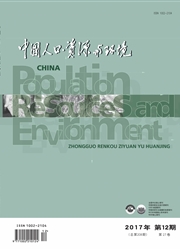

 中文摘要:
中文摘要:
改革开放以来,中国大规模的从农村向城镇的人口流动对资源的优化配置和经济快速发展产生了深远的影响。然而,中国的农村劳动力流动正逐渐从单向转变为城乡双向流动的格局。这一变化将深刻影响我国农村地区的发展前景。本文运用广东省西部山区云浮市的农户调查数据,通过构建Logistic非农就业决策模型,探讨劳动力回流对于农村地区非农就业发展的影响。实证结果表明,劳动力的回流的确促进了农村非农就业的发展,对于那些2000年以后回流、在外务工时间较长、变换工作次数较多的具有丰富外出工作经历的回流者尤其如此。这些劳动力在外务工过程中.实现了人力资本的积累。促进其回流后对农村非农经济的参与。随着时间的推移,新生代农民工逐渐成为农村外出劳动力的主体,在新的劳动力流动格局下。农村劳动力的这种特征转变将促使劳动力在回流后加速向非农产业转移。推动欠发达地区县域经济的发展。最后。本文就如何适应新的劳动力市场趋势提出了相应的对策建议。
 英文摘要:
英文摘要:
Mass migration movements from countryside to city have exerted an enormous influence to the allocation of resources and economic development in China since Reform and Opening-up. However, the structure of rural labor migration in China has transformed to a city-countryside bidirectional flow from a unidirectional one. This change will profoundly affect the economic development of rural districts in China. This study, using recent data of a peasant-household-survey in Yunfu City, explores what influence of the return of migration contributes to rural non-agriculture economic development by the way of establishing the Logistic model for non-agricultural employment behavior of rural labor. The empirical result shows that the returning workers, especially those who have a rich outside working experience and returned after the year of 2000, surely promote the development of rural non-farm industry. Those workers made an accumulation of human capital in the process of out-migration, which facilitated their participation in the non-agriculture economic development after their returning. As time goes by, the new migration workers have become the main body of out-migration. Under the new structure of migration, these features of rural laborers will promote them to shift to non-agriculture industry after their returning, and then promote the development of county economy in underdeveloped areas. Finally, we put forward corresponding suggestions according to the new trends of labor market.
 同期刊论文项目
同期刊论文项目
 同项目期刊论文
同项目期刊论文
 期刊信息
期刊信息
